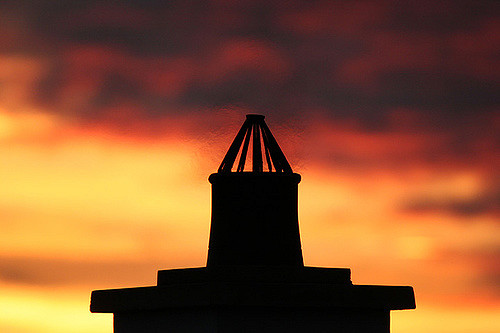FIRE SERVICE ISSUES CHIMNEY SAFETY ADVICE
With the nights starting to draw in and evenings becoming cooler, now is the perfect time for people to get their chimneys swept and maintained ahead of the winter months. Whether people have an open fire or use a solid fuel or wood burning stove it is equally important to have them inspected and swept.
Throughout national Chimney Fire Safety Week (5 to 11 September), the Isle of Wight Fire and Rescue Service will be sharing safety advice on its Facebook and Twitter pages to raise awareness of the risks that poorly maintained flues and chimneys can pose.
During large parts of the year when a chimney is not in use, it can become blocked with debris such as bird nests, cobwebs or loose bricks. All of these can increase the risk of the chimney catching fire or can produce harmful gases, such as carbon monoxide which can be fatal.
Mick Keenan, local senior officer at the Isle of Wight Fire and Rescue Service, said:
“Over the last 12 months, the Isle of Wight Fire and Rescue Service has attended 28 chimney fires, most of which could have been avoided if simple maintenance measures had been carried out.
“It is important to remember that the cleaning of chimneys should always be undertaken by a professional chimney sweeping company. We also advise installing a carbon monoxide detector in rooms containing open fires or log burners.”
If people are using a specific type of fuel in their home fire, the fire service has guidelines on how often a chimney should be swept, although these should be discussed and clarified with a chimney sweep or installer if people are planning on fitting a new system.
The guidelines are:
- Smokeless coals – at least once a year
- Wood – up to four times a year
- Bituminous coal – twice a year
- Oil – once a year
- Gas – once a year
More information about fire safety in the home can be found on our Website or the Chimney Fire Safety Week Website.





